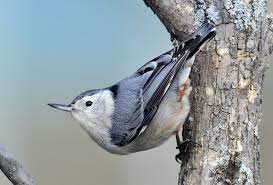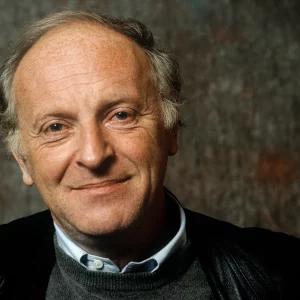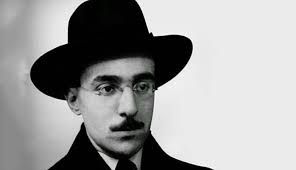
Occam’s Razor is a philosophical principle that even laymen like me can understand: When given competing theories, side with the simpler one until proven wrong.
At times, in an effort to be novel and upset the apple cart I featured in Ecclesiastes (where it intones, “There is nothing new under the sun”), poets get overly complicated with ideas, styles, and wordplay.
Egads, man. Just look out your window, why don’t you? Jane Kenyon, who had a bird feeder outside her New Hampshire window, did exactly that. The poem “At the Feeder” cuts clean and simple, each stanza a blend of description and simile for familiar birds: Chickadees, Evening Grosbeaks, Bluejays, Nuthatches, and Slate-Colored Juncos.
There’s even a first-stanza treat for poets: the nostalgia of getting replies from poetry journals via snail mail. (As Orwell would say: Such, such were the days!)
So instead of the all-too commercial line, “What’s in your wallet?”, let’s shift today to “What’s outside your window?” Chances are, it’s a poem in hiding. You know, like those old Highlights for Children drawings with hidden images. The ones you had to circle with a crayon or pencil while you waited for the dentist to scare the hell out of your mouth.
At the Feeder
Jane Kenyon
First the Chickadees take
their share, then fly
to the bittersweet vine,
where they crack open the seeds,
excited, like poets
opening the day’s mail.
And the Evening Grosbeaks—
those large and prosperous
finches—resemble skiers
with the latest equipment, bright
yellow goggles on their faces.
Now the Bluejay comes in
for a landing, like a SAC bomber
returning to Plattsburgh
after a day of patrolling the ozone.
Every teacup in the pantry rattles.
The solid and graceful bodies
of Nuthatches, perpetually
upside down, like Yogis…
and Slate-Colored Juncoes, feeding
on the ground, taking only
what falls to them.
The cats watch, one
from the lid of the breadbox,
another from the piano. A third
flexes its claws in sleep, dreaming
perhaps, of a chicken neck,
or of being worshiped as a god
at Bubastis, during
the XXIII dynasty.








